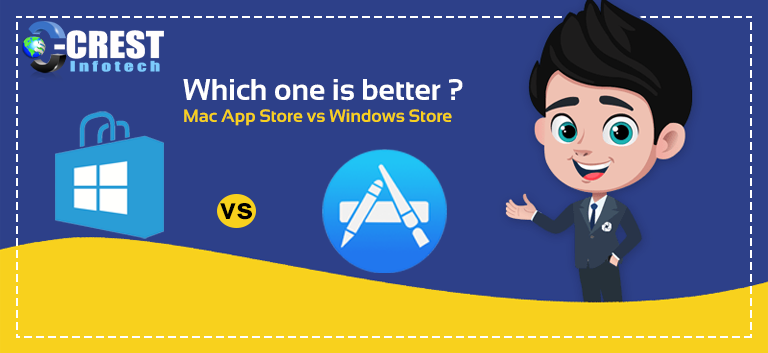For anyone who owns an iMac or MacBook, the Mac App Store has proven to be a lifesaver. We’ve been able to download new software and operating system updates straight from the Internet, rather than having to go out and purchase the discs, unlike in previous years.
But what about those who choose personal computers (PCs)? Is there something comparable, or is it still a case of going to the nearest computer store or buying discs online whenever a new version of Windows or Office is released?
Those that have a PC running Windows 8 or RT can now access the Windows Store, which is close to the Mac App Store in several ways. Despite the fact that it hasn’t been around as long as the Mac edition and isn’t as widely used, it still has 50,000 apps.
Apps are divided into categories and classified by new launches, top free apps, and top paid apps, similar to the Mac App Store. Apps can be mounted on up to five separate computers at the same time. One of the best things about the Windows Store is that, like the Mac App Store, there are free and paid applications, as well as paid apps with free trials. That’s a smart way to make sure you’ll like an app before spending money on it, and that might lead to higher customer loyalty.
Many of the applications in the Windows Store are identical to those in the Mac App Store, such as Twitter, Skype, All Recipes, and Adobe Photoshop. Games like Halo and Scribblemix, as well as the Nook e-reader software, are among the best-selling titles. Although there are several apps that are similar, there are several that are exclusive to the two platforms. Each app store has items that are only available for Windows or Mac, which separates the two.
The Mac App Store is fantastic because it is well-known and provides a diverse selection of apps. It’s simple to use for someone who knows how to use the iTunes Store because it has the same interface and overall user experience. It also appeals to a broader audience than the Windows Store, which is only restricted to purchasers of the most recent PC machines, making it more useful to a larger number of people.
It’s difficult to say which one is superior to the other. Comparing app stores is similar to comparing every other part of the Mac vs. PC debate: those who prefer Mac will still insist that Apple products are superior, and those who prefer PC will argue that Windows and the machines it runs on are a better alternative. As no computer is perfect, both have advantages and disadvantages; in the end, customers can choose which product, interface, and user experience they prefer and purchase accordingly.
However, many of Windows’ most recent developments, such as the Windows Store, are identical to features that Mac users have been enjoying for quite some time. Regardless of whether Microsoft develops app stores and other technologies similar to what we’ve had for years with Mac, those of us who prefer Apple will continue to benefit from the high quality manufacturing and creative design for many years to come.



